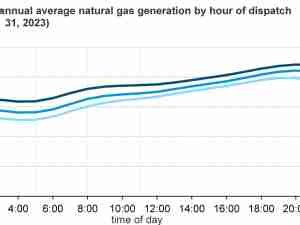China’s two biggest coal-producing regions have been hit by virus flare-ups and lockdowns that are disrupting supplies and boosting prices for the country’s mainstay fuel as demand picks up heading into winter.
In Datong, Shanxi province, a key rail route hauling coal eastwards saw volumes shrink as much as 30% because of crew shortages, the China Coal Transportation and Distribution Association reported. Some parts of Datong were locked down Oct. 11, and dozens of rail workers on the line to Qinhuangdao were among more than 100 new virus cases reported on Oct. 17.
Meanwhile, coal sales in Ordos in Inner Mongolia fell over the past week after the city implemented a 3-day lockdown, according to the report.
The pinch on coal supplies is unlikely to trigger shortages, given the country’s intense push to boost inventories ahead of the winter. But it does show how President Xi Jinping’s zero-tolerance approach to Covid-19 is affecting diverse parts of the world’s No. 2 economy.
Spot prices for coal in Qinhuangdao have risen due to both falling temperatures as well as tighter supplies because of the Covid flare-ups, Morgan Stanley analysts including Sara Chan wrote in a note Tuesday. The price climbed 2.2% to 1,558 yuan a ton on Oct. 17, she wrote.
Shaanxi, China’s third-biggest coal producing region, warned local miners of harsh punishments should they raise prices too high or purposely curb production in the hope of making higher profits later, according to an official statement cited by local industry publication Yulin Coal Web.
The latest count of new daily infections from the regions, on Tuesday, was 72 in Inner Mongolia, 59 in Shaanxi and 45 in Shanxi. Added up, that was about 20% of the country’s total.
China has stepped up efforts to ensure energy supply ahead of what might be a colder-than-normal winter, including ordering liquefied natural gas importers to stop reselling cargoes to other buyers and instead direct them to the mainland.
And coal stockpiles at major power plants are at about 170 million tons, nearly double last year’s levels, Ren Jingdong, vice head of the National Energy Administration, said Monday at a press conference.
China’s central government will sell more pork from reserves and guide local governments to release their inventories too because of a continuing increase in prices, the National Development and Reform Commission said in a statement on its official WeChat account Wednesday.








